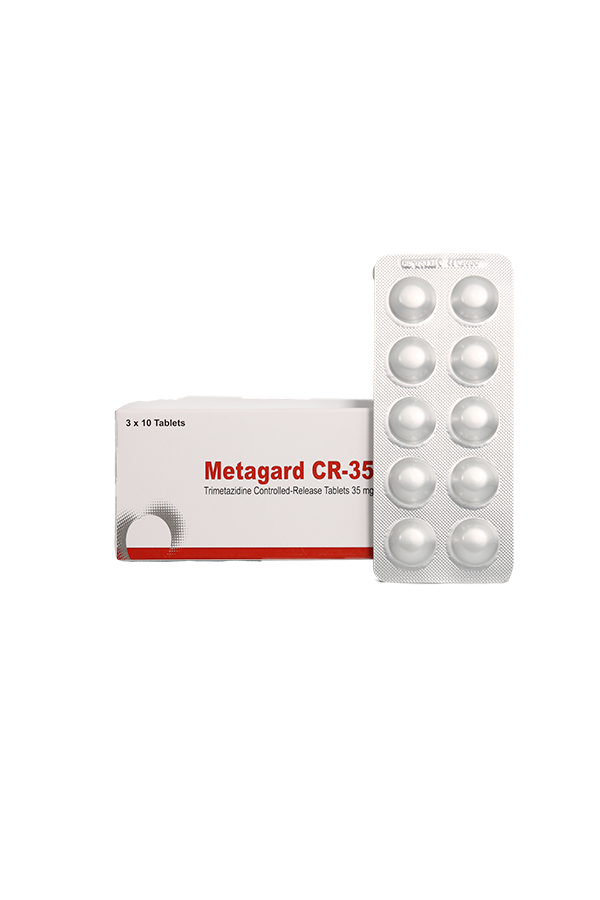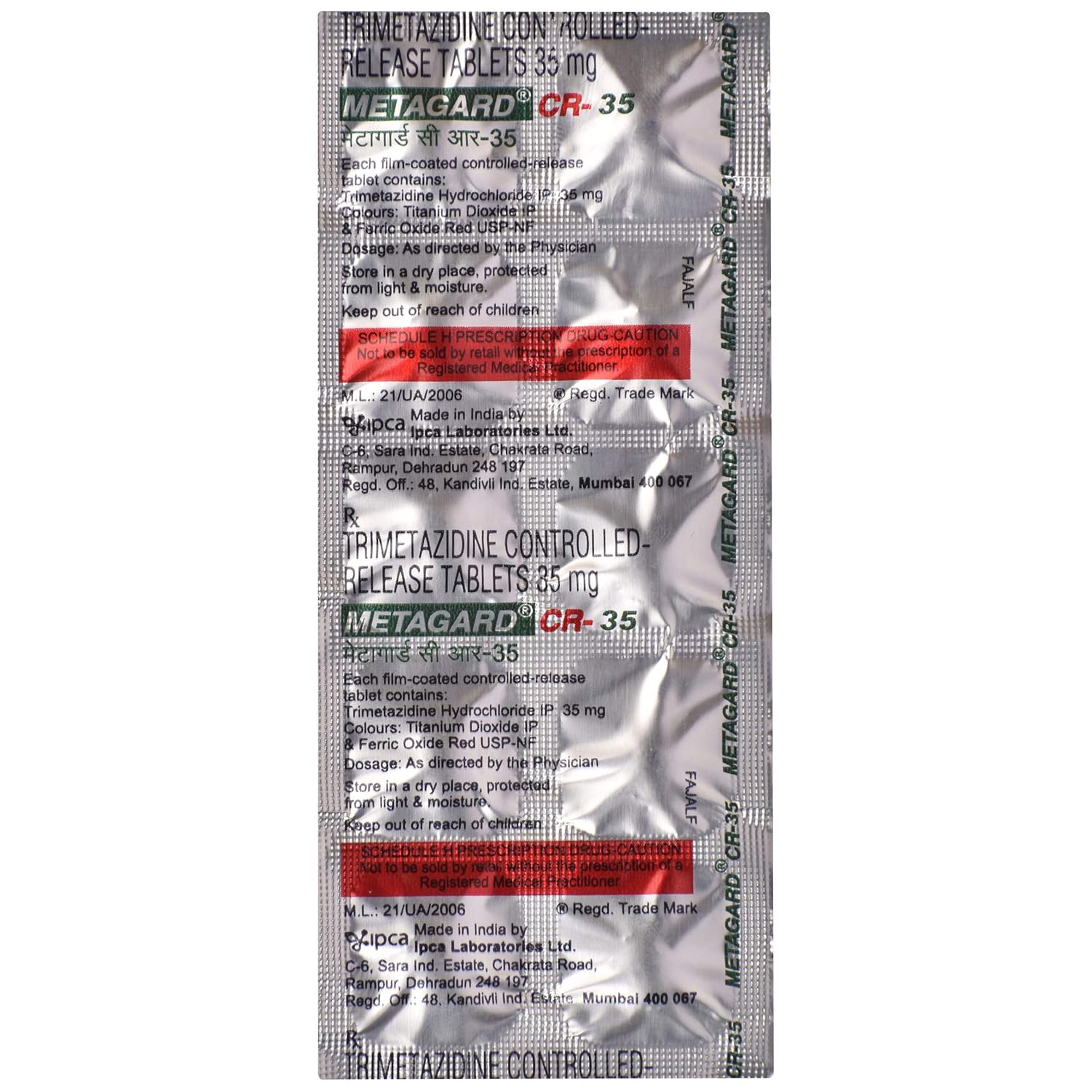- Your cart is empty
- Continue Shopping
Metagard CR 35 Tablet is a medicine prescribed for people suffering from angina pectoris, a condition where reduced blood supply to the heart causes chest pain. The medicine improves the way heart cells use oxygen, allowing the heart to function more effectively even during limited oxygen availability. By protecting the heart muscle from damage caused by poor blood flow, it reduces both the frequency and intensity of angina attacks.
This tablet is usually taken twice a day with meals, or exactly as recommended by the doctor. To gain the maximum benefit, patients are advised to adopt heart-healthy practices such as regular exercise, avoiding smoking, and following a nutritious diet low in fats. Skipping doses or stopping the medicine suddenly without consulting a doctor may allow symptoms to return or worsen.
Some people using this medicine may notice dizziness, headaches, nausea, abdominal discomfort, vomiting, diarrhea, weakness, skin rashes, or itching. These reactions are usually mild and tend to resolve as the body adapts. Taking the tablet with food can help reduce stomach upset. If any symptom is persistent or troubling, medical advice should be sought.
Metagard CR 35 is not suitable for managing sudden episodes of chest pain. It is also not recommended for individuals with Parkinson’s disease, movement-related disorders, or severe kidney problems. Because dizziness or drowsiness may occur, patients should avoid driving or using heavy machines if they feel unsteady. Always tell your doctor about any other medications or medical conditions before starting this medicine.
This tablet works by altering how the heart generates energy. Normally, the heart relies heavily on fatty acids, but this medicine shifts its energy use toward glucose, which requires less oxygen. This change helps the heart pump more efficiently under stress and reduces its oxygen demand, thereby preventing chest pain.
If a dose is forgotten, it should be taken when remembered. However, if the next scheduled dose is near, the missed dose should be skipped and the regular routine continued. Doubling the dose is not recommended.
Caution is required in patients with kidney disease, as dose adjustments may be necessary, and those with advanced kidney impairment should not take this medicine. Limited information is available about its use in pregnancy, breastfeeding, or liver disease, so consultation with a doctor is essential before use. Alcohol intake while on this medicine should also be discussed with a healthcare professional.
Vendor Information
- Address:
- No ratings found yet!
















Reviews
There are no reviews yet.